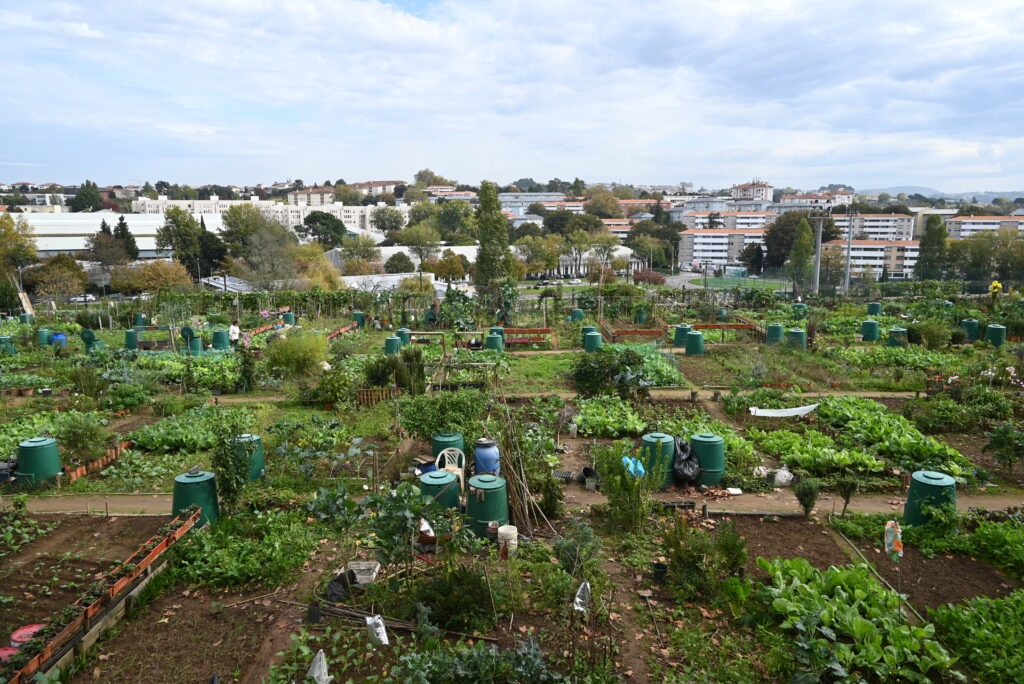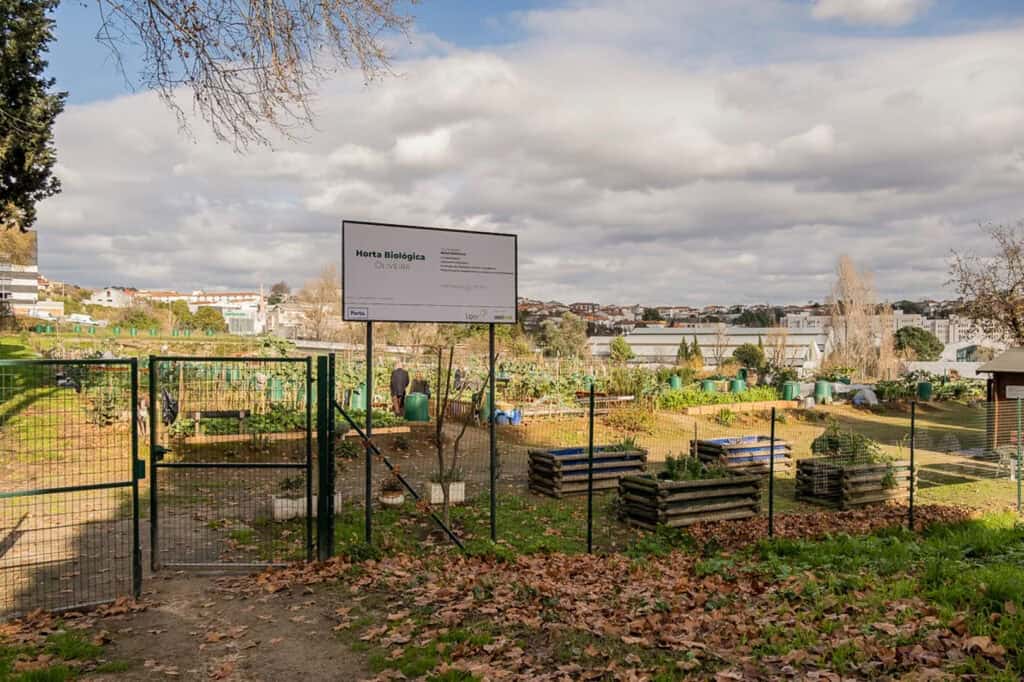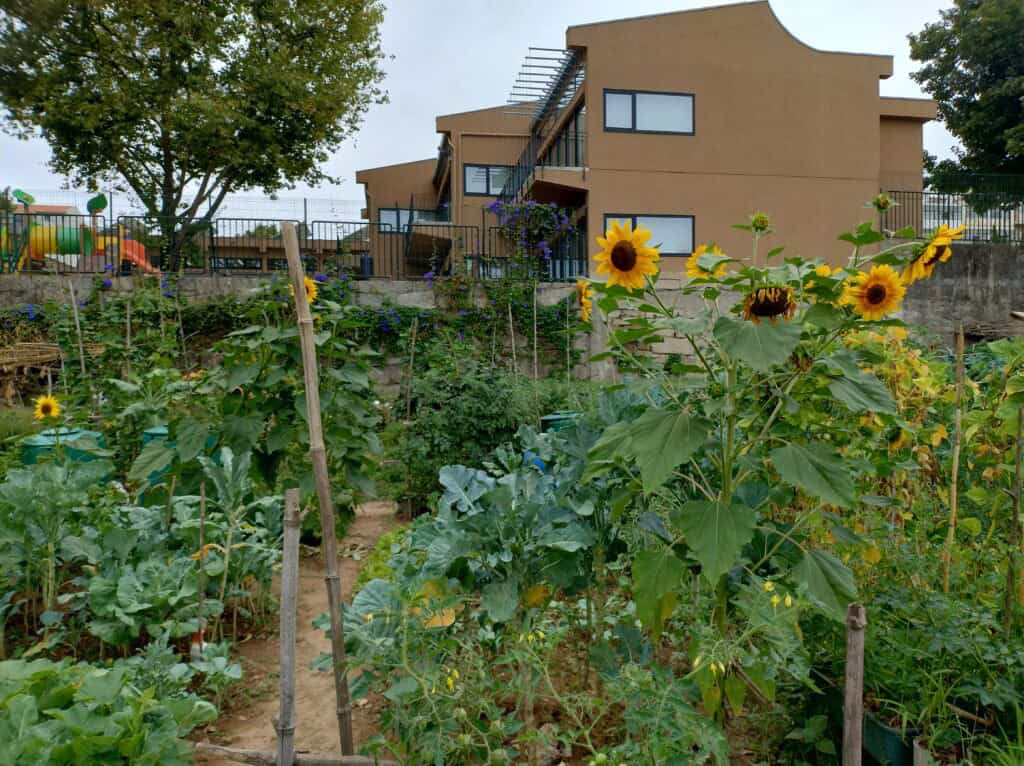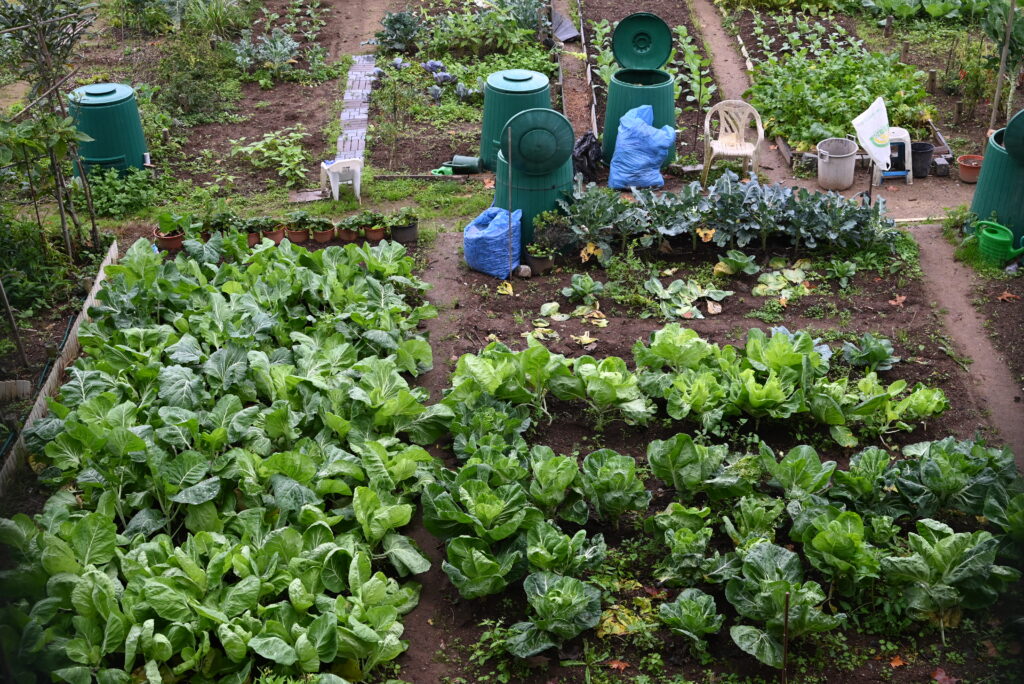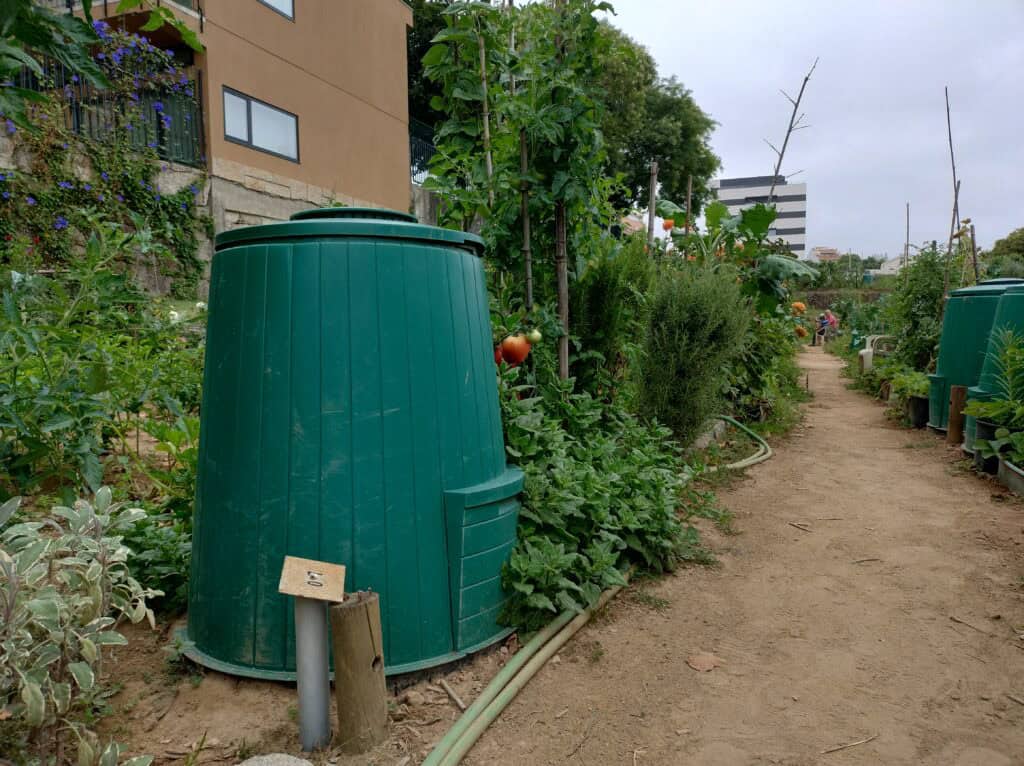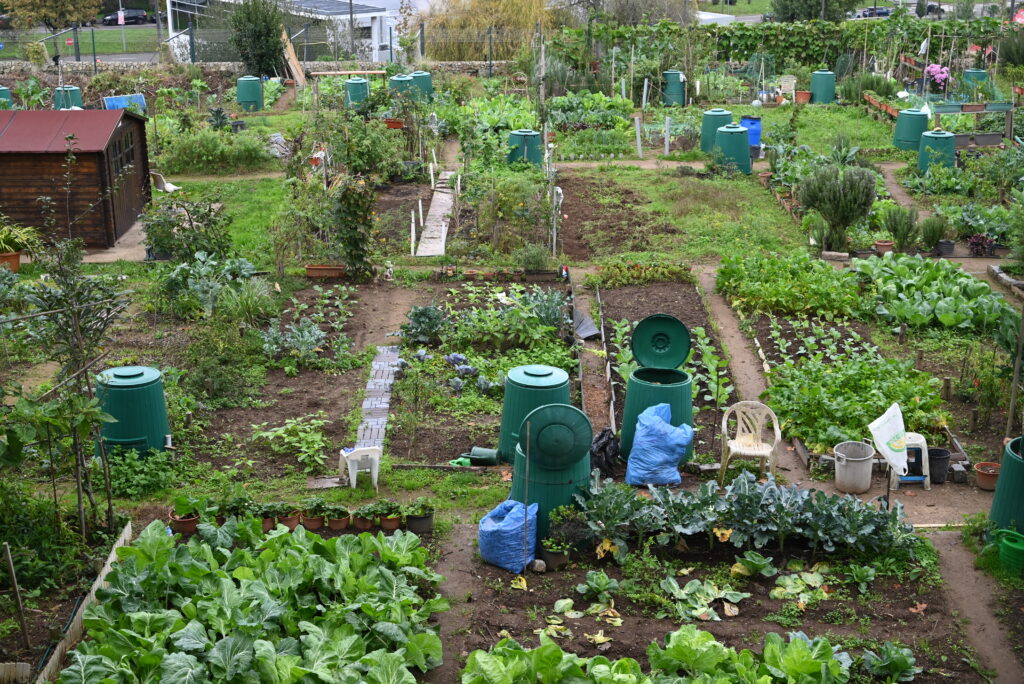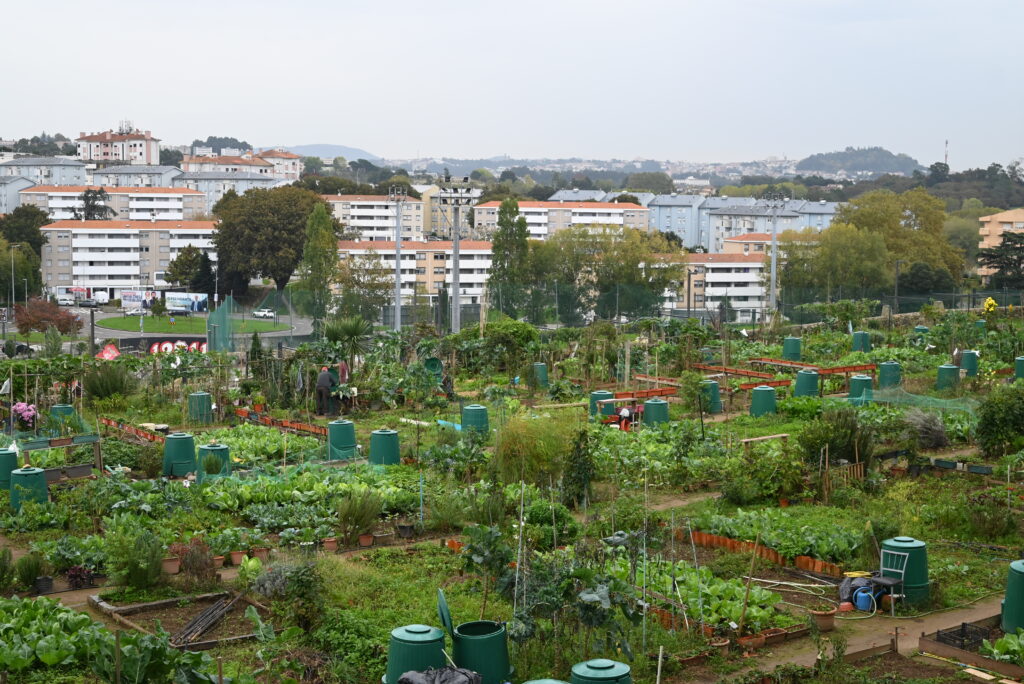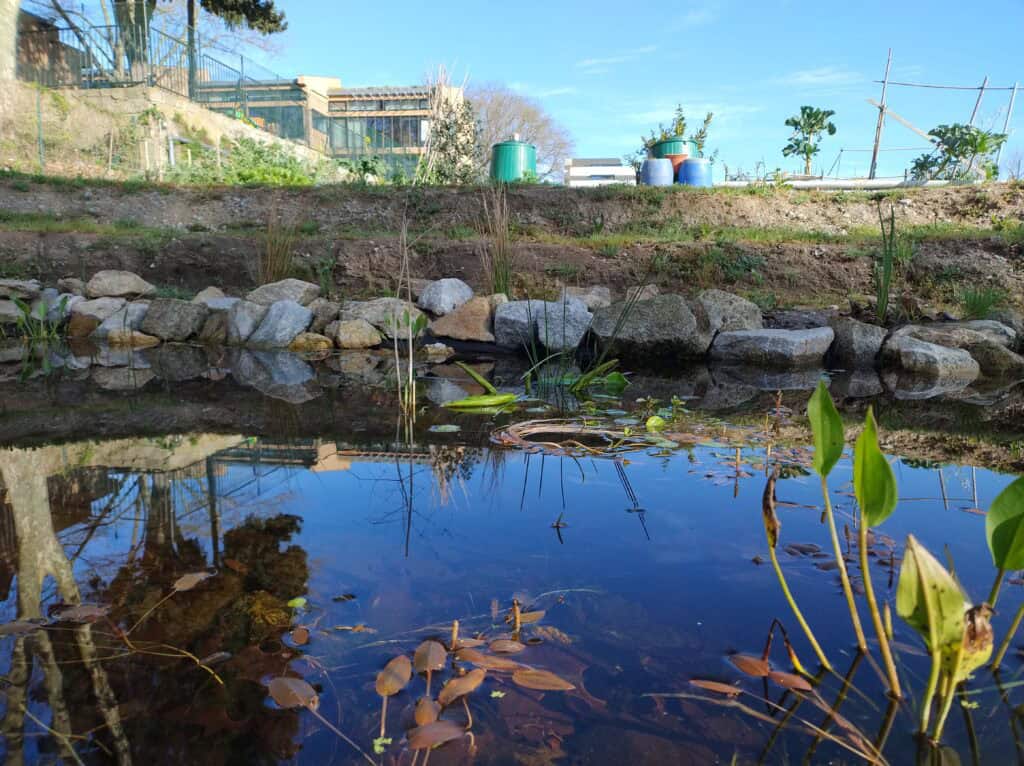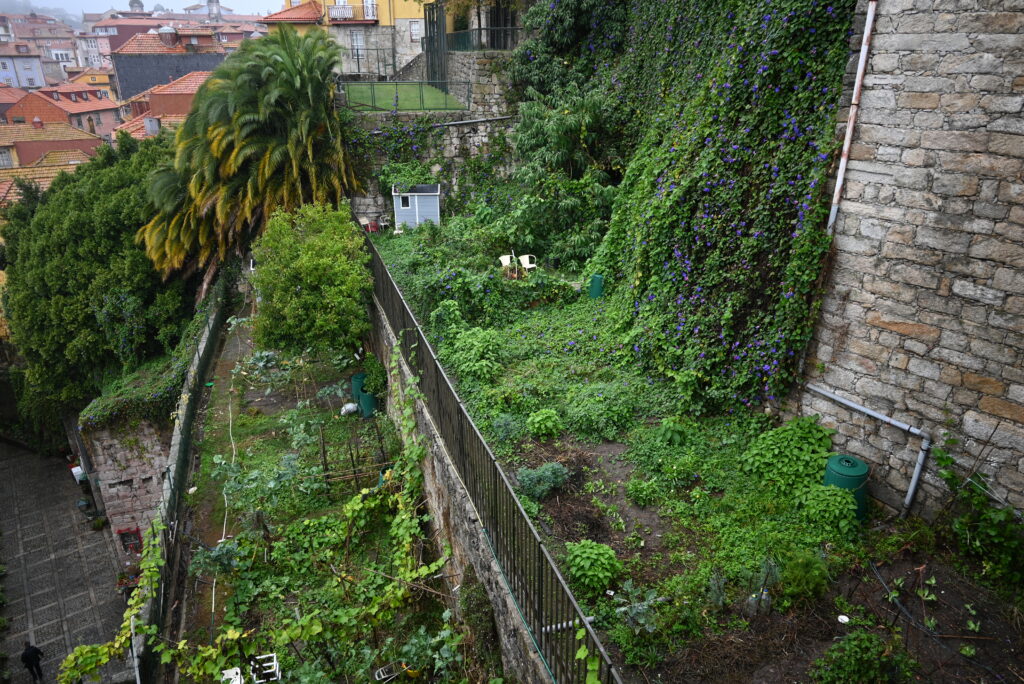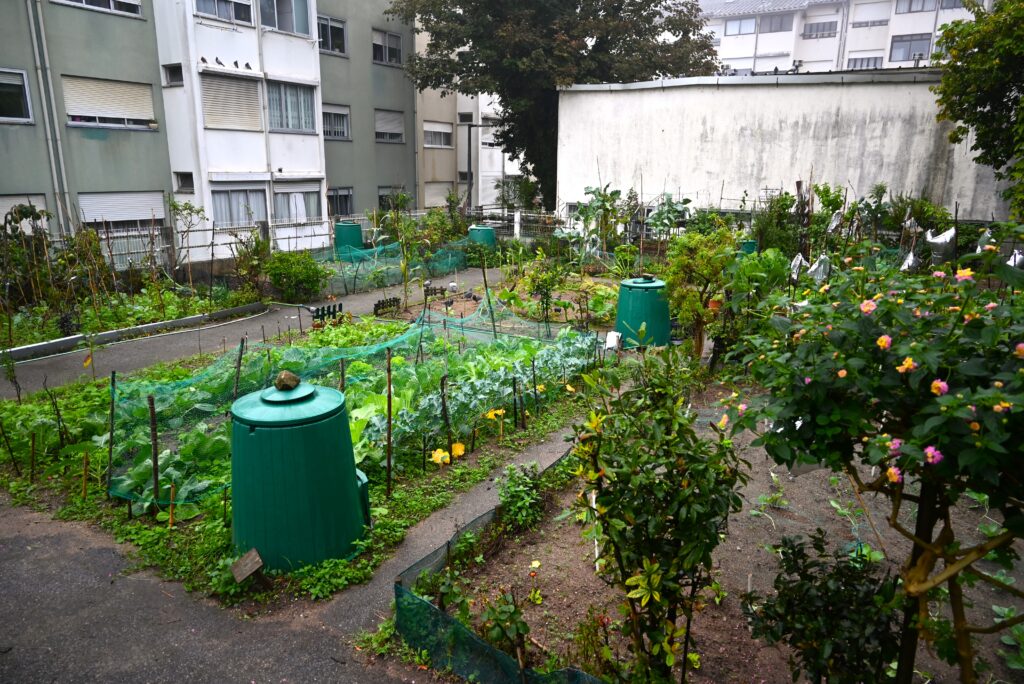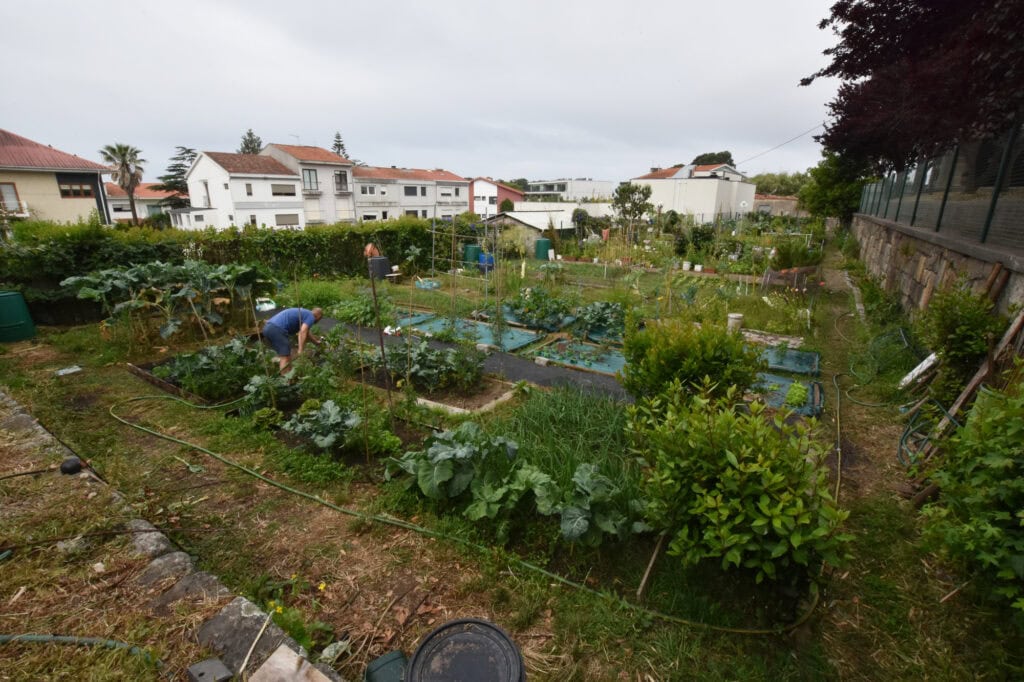Horta da Oliveira, located in Campanhã behind the Falcão Primary School, integrates organic farming practices with environmental, social and educational purposes. It has an area of 4232 m² and 99 plots, allowing citizens to grow food in a sustainable way, while promoting the circular economy by composting organic waste.
It is also an educational centre, providing training in organic farming and involving local schools and institutions, including the children of Falcão Primary School and IPSS (Private Social Solidarity Institutions) users, with plots adapted for people with reduced mobility.
Horta da Oliveira stands out as the largest municipal vegetable garden in the city, and is a good example of how urban spaces can be transformed into productive and inclusive areas, strengthening citizens’ connection to nature and healthy eating.
This vegetable garden also includes a pond, which is part of the Escola Básica do Falcão project, which collects rainwater from the school’s green roofs.
Horta da Oliveira is part of the Municipal Network of Urban Gardens, which includes 13 vegetable gardens, with 4 hectares of Municipal Gardens, where 400 composters are installed. The garden is managed by LIPOR, as part of the LIPOR’s Hortas Urbanas – Horta à Porta project, which aims to articulate the availability of various local organisations in a network that would enable a strategy for the Greater Porto Region, in the field of home composting, the promotion of organic farming and the creation of urban vegetable gardens.
Additionally, this garden is also a refuge for many wild birds and, therefore, is part of the itinerary of locations for the Anilhagem Científica de Aves sessions. This project began in April 2024 and aims to scientifically study birds and their migrations. This allows the municipality to monitor the birds that live, nest, and rest in the city, studying their life cycles and understanding the importance of certain spaces for different species. In the various sessions held in 2024, more than 180 individuals of 28 different species were ringed. Horta da Oliveira hosted one of these sessions, where 20 individuals from 7 different species were ringed.
